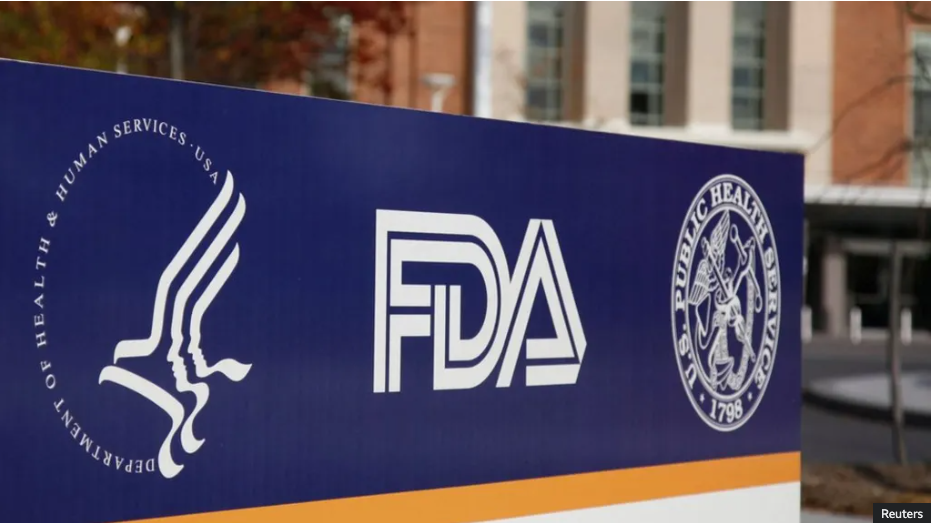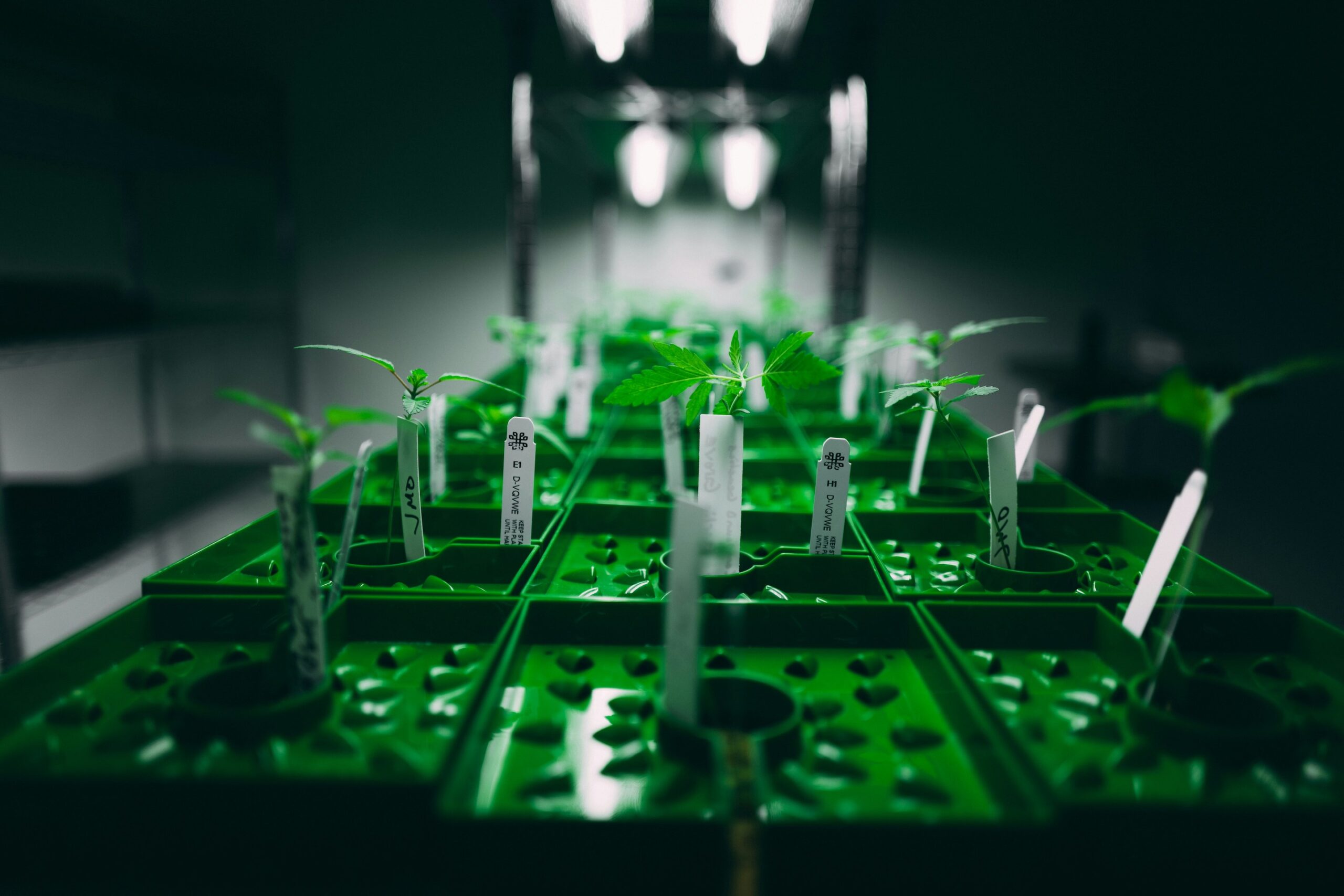April 1st – April 8th 2022
Effects of ∆9-Tetrahydrocannabinol (∆9-THC) and Cannabidiol (CBD) on Blood Viscosity, Elasticity, and Membrane Integrity
Caution should be taken when consuming cannabis products in individuals with red blood cells (RBC) disorders, a new study suggest.
Home to phytocannabinoids, flavonoids, and terpenes, the cannabis plant is gaining increasing attention over the years due to its potential therapeutic effects. It is also a very complex plant because of the presence of the different concentrations of phytocannabinoids, with ∆9-tetrahydrocannabinol (∆9-THC) and cannabidiol (CBD) being the most investigated compounds.
While studies aiming to understand how these molecules can have an impact on the cardiovascular system are existing, less is known about how they can directly affect blood viscosity, elasticity, and red blood cells (RBC) morphology, processes which can be abnormal in different disease states (e.g., sickle cell anemia, myocardial infarction…).
Researchers at the University of the West Indies in Jamaica aimed to investigate the impact of ∆9-THC and CBD (either separately or in combination) on blood viscosity, elasticity, and RBC membrane integrity. [1] To determine this, they collected blood samples from 24 healthy non-smokers adults, aged 21 to 42, and tested the effects of increasing ∆9-THC and CBD concentrations and two fixed ∆9-THC and CBD extracts (4:1 ∆9-THC: CBD and 1:1 ∆9-THC: CBD).
They found a significant increase in blood viscosity with increasing ∆9-THC and CBD concentrations as well as in the extracts, with more pronounced effects in the 1:1 ∆9-THC: CBD extract. Similarly, increased blood elasticity was noted in the 4 :1 ∆9-THC: CBD and 1:1 ∆9-THC: CBD extracts while no changes were noted when challenged with ∆9-THC and CBD separately. Finally, RBC morphology was disturbed in the presence of ∆9-THC and CBD, which was more pronounced with increasing concentrations (e.g., presence of burr cells, fragmentation, degeneration).
The authors concluded: “The results indicate that there is a significant effect of increasing concentrations of THC and CBD on blood viscosity… Caution must be exercised in the consumption of cannabis products particularly in persons with sickle cell disease, as this could lead to decreased membrane deformability and increased hemolysis culminating in increased incidence of VOCs, painful crises and even stroke as well as worsening anemia.”
A Suppressive Role of ∆9-Tetrahydrocannabinol (∆9-THC) in Mediating Antitumor Immunity?
These findings can have a big impact on the use of ∆9-THC in combination with immunotherapy drugs in cancer patients.
It is well-known that immunotherapy drugs via the use of immune checkpoint inhibitors (ICB) have helped improved clinical benefit of cancer treatment. [2] These ICB therapies include CTLA4, PD-1 and PD-L1 antibodies, and have been approved for the treatment of more than 50 different cancer types. [3] However, several medications are frequently used in combination to manage ICB-related side effects. [4]
One drug which is gaining popularity as an important therapeutic aid for cancer patients is cannabis. As such, the FDA have approved the use of two ∆9-tetrahydrocannabinol (∆9-THC)-based drugs called nabilone and dronabinol for the treatment of nausea and vomiting associated with chemotherapy. [5] However, a recent study indicated that the use of cannabis in cancer patients with immunotherapy treatment was associated with poor response, suggesting that the combination may suppress antitumor activity. [6]
To further investigate this matter, a group of researchers in China aimed to determine whether ∆9-THC interfered with immunotherapy and if so, what would be the mechanism of action. [7] Using mouse models, they showed that both ∆9-THC and the endocannabinoid (cannabinoid synthesized naturally in the body) anandamide (AEA) decreased the efficacy of PD-1 blockade. In addition, they found that cannabinoid receptor 2 (CNR2) mediated the suppressive effects of cannabinoids in the function of tumor specific T-cells.
They concluded: “These findings indicated that the endocannabinoid system is involved in the suppression of the antitumor immune response, suggesting that cannabis and drugs containing THC should be avoided during cancer immunotherapy…Since CNR2 is mainly expressed in immune cells, specific blockade of the CNR2 signaling may avoid the neurological side effects, and thus offer a promising option for the treatment of cancer and other immune-related diseases.”
Cannabis Use Among Pregnant Women: Results from a Cross-Sectional Survey
More than half of the users believed that cannabis use during pregnancy was safe.
With the increasing number of US states legalizing cannabis for recreational and medicinal purposes, it is not surprising that this can influence pregnant women’s judgment regarding cannabis safety during pregnancy, despite clear evidence that it can negatively affect the offspring. Along those lines, reports indicate that cannabis use during pregnancy significantly increased in several US states after legalization. [8],[9] However, what are some of the factors that may shape pregnant women’s perceptions and push them to use cannabis products during this critical period?
To answer this, a group of researchers in Washington DC surveyed 284 pregnant women in rural Pennsylvania and gathered information including patient’s demographics, opinions regarding tobacco/alcohol/cannabis use and reasons for self-medication with cannabis. [10]
They found that while more than >90% viewed tobacco and alcohol as impairing products 82% and 63% reported that recreational and medical cannabis, respectively, were unsafe during pregnancy. In addition, 2/3 of users during pregnancy indicated they were using cannabis to help with nausea, anxiety, insomnia, and pain management, while more than half of them believed it was safe to use during pregnancy!
The authors concluded: “All pregnant women should be counseled regarding the lack of safety of cannabis use during pregnancy, that THC crosses the placenta and appears in breast milk and may be associated with impaired fetal/infant neurodevelopment. Research with long-term follow-up is needed to provide better guidance regarding the risks of prenatal cannabis use.”
Cannabidiol (CBD) Topical Application in Relieving Pain after Total Knee Arthroplasty (TKA): Results from a Prospective Randomized Double-Blinded Placebo-Controlled Trial
CBD may not be the best compound to relieve pain after TKA, a new study suggests.
Opioids are among the oldest and most potent pain-relieving medications and are usually prescribed when the pain is very severe and cannot be resolved using over-the-counter pain medications. However, they are commonly associated with a high risk of dependence which can lead to overdose and death.
Orthopedic surgeons are responsible for approximately 8% of narcotic prescriptions in the US, especially after undergoing TKA. [11] ,[12] Increasing evidence suggest that medical cannabis and more specifically cannabidiol (CBD) may be used as alternative agent to help decrease pain. However, a study published in 2020 found that patients who used CBD perioperatively and are undergoing TKA have no differences in postoperative pain nor in opioid use. [13]
To further elaborate on this finding, a group of researchers at the Rothman Orthopedic Institute at Thomas Jefferson University in Philadelphia performed a prospective randomized double-blinded placebo-controlled trial on 80 patients undergoing TKA and applied topical CBD (n=19), essential oil (n=21), the combination of CBD and essential oil (n=21), or placebo (n=19) three times daily for two weeks postoperatively. [14]
Using a wide combination of subjective measures assessed on day 0, 1, 2, 7, and 42, they found that no significant impact of CBD on pain and sleep scores, functional outcomes, and opioid consumption.
The authors concluded: “These results suggest the local effects of topical CBD are not beneficial for providing additional pain relief in the early postoperative period after TKA. Further investigation is needed to evaluate the effect of differing doses, combinations of CBD and tetrahydrocannabinol (THC), or oral CBD on pain relief after TKA.”
References
[1] James TR, Richards AA, Lowe DA, Reid WA, Watson CT, Pepple DJ. The in vitro effect of delta-9-tetrahydrocannabinol and cannabidiol on whole blood viscosity, elasticity and membrane integrity. J Cannabis Res 2022;4(1):15. DOI: 10.1186/s42238-022-00126-z.
[2] Pardoll DM. The blockade of immune checkpoints in cancer immunotherapy. Nat Rev Cancer 2012;12(4):252-64. DOI: 10.1038/nrc3239
[3] Topalian SL, Taube JM, Anders RA, Pardoll DM. Mechanism-driven biomarkers to guide immune checkpoint blockade in cancer therapy. Nat Rev Cancer 2016;16(5):275-87. DOI: 10.1038/nrc.2016.36.
[4] Postow MA, Sidlow R, Hellmann MD. Immune-Related Adverse Events Associated with Immune Checkpoint Blockade. N Engl J Med 2018;378(2):158-168. DOI: 10.1056/NEJMra1703481
[5] https://www.accessdata.fda.gov/drugsatfda_docs/label/2017/018651s029lbl.pdf, assessed on April 8, 2022
[6] Boggs DL, Nguyen JD, Morgenson D, Taffe MA, Ranganathan M. Clinical and Preclinical Evidence for Functional Interactions of Cannabidiol and Delta(9)-Tetrahydrocannabinol. Neuropsychopharmacology 2018;43(1):142-154. DOI: 10.1038/npp.2017.209.
[7] Xiong X, Chen S, Shen J, et al. Cannabis suppresses antitumor immunity by inhibiting JAK/STAT signaling in T cells through CNR2. Signal Transduct Target Ther 2022;7(1):99. DOI: 10.1038/s41392-022-00918-y.
[8] Gnofam M, Allshouse AA, Stickrath EH, Metz TD. Impact of Marijuana Legalization on Prevalence of Maternal Marijuana Use and Perinatal Outcomes. Am J Perinatol 2020;37(1):59-65. DOI: 10.1055/s-0039-1696719
[9] Grant TM, Graham JC, Carlini BH, Ernst CC, Brown NN. Use of Marijuana and Other Substances Among Pregnant and Parenting Women With Substance Use Disorders: Changes in Washington State After Marijuana Legalization. J Stud Alcohol Drugs 2018;79(1):88-95
[10] Satti MA, Reed EG, Wenker ES, et al. Factors that shape pregnant women’s perceptions regarding the safety of cannabis use during pregnancy. J Cannabis Res 2022;4(1):16. DOI: 10.1186/s42238-022-00128-x
[11] Boddapati V, Padaki AS, Lehman RA, Lenke LG, Levine WN, Riew KD. Opioid Prescriptions by Orthopaedic Surgeons in a Medicare Population: Recent Trends, Potential Complications, and Characteristics of High Prescribers. J Am Acad Orthop Surg 2021;29(5):e232-e237. DOI: 10.5435/JAAOS-D-20-00612.
[12] Hernandez NM, Parry JA, Taunton MJ. Patients at Risk: Large Opioid Prescriptions After Total Knee Arthroplasty. J Arthroplasty 2017;32(8):2395-2398. DOI: 10.1016/j.arth.2017.02.060.
[13] Runner RP, Luu AN, Nassif NA, et al. Use of Tetrahydrocannabinol and Cannabidiol Products in the Perioperative Period Around Primary Unilateral Total Hip and Knee Arthroplasty. J Arthroplasty 2020;35(6S):S138-S143. DOI: 10.1016/j.arth.2020.01.077
[14] Haffar A, Khan IA, Abdelaal MS, Banerjee S, Sharkey PF, Lonner JH. Topical Cannabidiol (CBD) After Total Knee Arthroplasty Does Not Decrease Pain or Opioid Use: A Prospective Randomized Double-Blinded Placebo-Controlled Trial. J Arthroplasty 2022. DOI: 10.1016/j.arth.2022.03.081.






